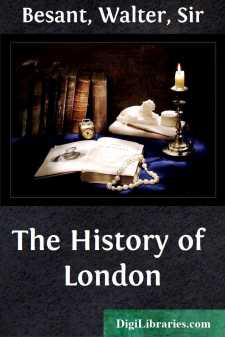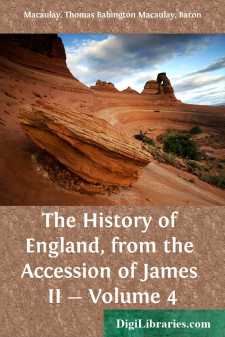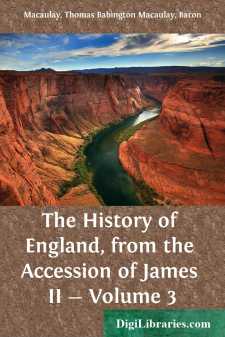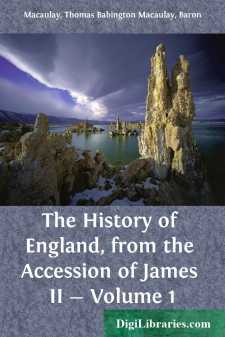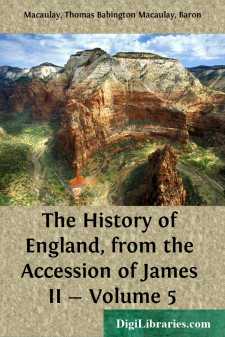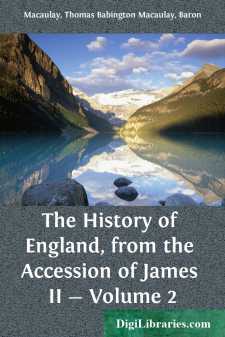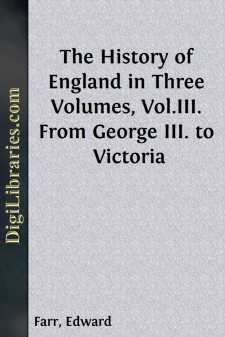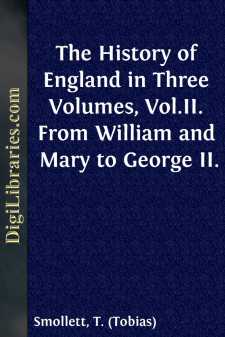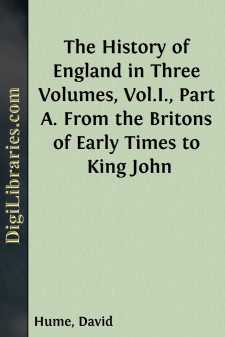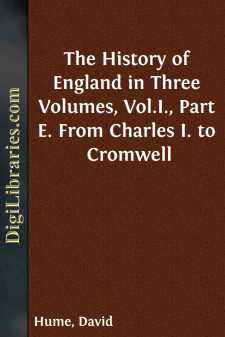History
- Africa 30
- Americas (North Central South West Indies) 50
- Ancient 68
- Asia 58
- Australia & New Zealand 8
- Canada 41
- Caribbean & West Indies 1
- Civilization 20
- Eastern Europe 12
- Europe
- Expeditions & Discoveries 60
- General 77
- Historical Geography 1
- Jewish 9
- Latin America 3
- Medieval 8
- Middle East 13
- Military 248
- Revolutionary 8
- Study & Teaching 5
- United States 353
- Western Europe 56
- World 13
Europe Books
Sort by:
by:
Walter Besant
1. THE FOUNDATION OF LONDON. PART I. 'In the year 1108 B.C., Brutus, a descendant of Æneas, who was the son of Venus, came to England with his companions, after the taking of Troy, and founded the City of Troynovant, which is now called London. After a thousand years, during which the City grew and flourished exceedingly, one Lud became its king. He built walls and towers, and, among other...
more...
ON the eighteenth of January 1691, the King, having been detained some days by adverse winds, went on board at Gravesend. Four yachts had been fitted up for him and for his retinue. Among his attendants were Norfolk, Ormond, Devonshire, Dorset, Portland, Monmouth, Zulestein, and the Bishop of London. Two distinguished admirals, Cloudesley Shovel and George Rooke, commanded the men of war which formed...
more...
THE Revolution had been accomplished. The decrees of the Convention were everywhere received with submission. London, true during fifty eventful years to the cause of civil freedom and of the reformed religion, was foremost in professing loyalty to the new Sovereigns. Garter King at arms, after making proclamation under the windows of Whitehall, rode in state along the Strand to Temple Bar. He was...
more...
CHAPTER I. I PURPOSE to write the history of England from the accession of King James the Second down to a time which is within the memory of men still living. I shall recount the errors which, in a few months, alienated a loyal gentry and priesthood from the House of Stuart. I shall trace the course of that revolution which terminated the long struggle between our sovereigns and their parliaments, and...
more...
PREFACE TO THE FIFTH VOLUME. I HAVE thought it right to publish that portion of the continuation of the "History of England" which was fairly transcribed and revised by Lord Macaulay. It is given to the world precisely as it was left: no connecting link has been added; no reference verified; no authority sought for or examined. It would indeed have been possible, with the help I might have...
more...
Consecration of the Nuncio at Saint James's Palace; his public ReceptionThe Duke of SomersetDissolution of the Parliament; Military Offences illegally punishedProceedings of the High Commission; the UniversitiesProceedings against the University of CambridgeThe Earl of MulgraveState of OxfordMagdalene College, OxfordAnthony Farmer recommended by the King for PresidentElection of the PresidentThe...
more...
by:
Edward Farr
WAR WITH SPAIN. The year had not closed before the ministers found that a rupture with Spain was inevitable. The first intimation of it was detected in the menacing conduct of the court of Versailles; and Lord Bristol, the English ambassador at Madrid, was instructed to demand the real intentions of Charles III., and the real purport of the family compact. General Wall, the Spanish minister replied...
more...
ACCOUNT OF THE NEW MINISTRY. William began his reign with a proclamation, for confirming all protestants in the offices which they enjoyed on the first day of December; then he chose the members of his council, who were generally staunch to his interest, except the archbishop of Canterbury and the earl of Nottingham, and these were admitted in complaisance to the church-party, which it was not thought...
more...
by:
David Hume
The religion of the Britons was one of the most considerable parts of their government; and the druids, who were their priests, possessed great authority among them. Besides ministering at the altar, and directing all religious duties, they presided over the education of youth; they enjoyed an immunity from wars and taxes; they possessed both the civil and criminal jurisdiction; they decided all...
more...
by:
David Hume
The ill humor of the commons, thus wantonly irritated by the court, and finding no gratification in the legal impeachment of Buckingham, sought other objects on which it might exert itself. The never-failing cry of Popery here served them in stead. They again claimed the execution of the penal laws against Catholics; and they presented to the king a list of persons intrusted with offices, most of them...
more...


